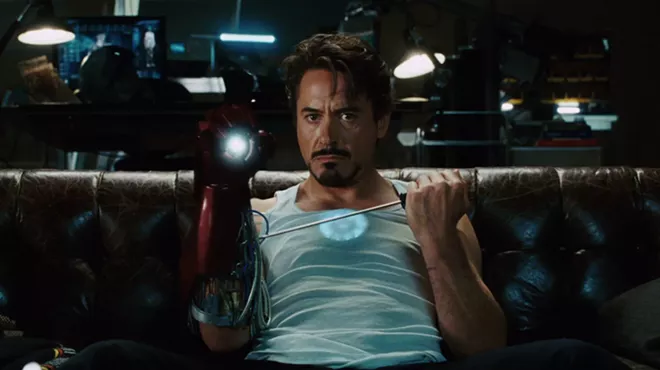Wednesday, October 27, 2010
Let's Fix: television itself
(Comic credit Penny Arcade)
Television is in trouble. Not the way newspapers are in trouble — not yet. Television still has some inertia, mostly in the form of elderly NCIS viewers. But the very medium — at least the delivery vehicle of the medium — is doomed.
It’s a simple problem of the cheaper, more convenient, higher-quality kind. We consumers will eventually migrate to a good that is cheaper, more convenient, and of a higher quality than the one we use currently. Right now, the Internet gives us television that is cheaper, more convenient, and — if not of a higher image quality yet — faster, more accessible, and beautifully commercial-free.
At my house, my roommates have a massive big screen TV. We do not, however, have it hooked up to *television.* We do not have it hooked up to Comcast cable. That's pricey. And we don’t have it hooked up to rabbit ears. That’s just old-fashioned.
We watch our television shows on Hulu. We watch the television shows that aren’t currently on Hulu on shadier, commercial-free streaming alternatives. We watch our live sports on some odd foreign streaming channel that gives us advertisements for Lost DVDs in Swedish. And if we can’t find anything, we would hie to the Bittorrent and find them. Granted, that is not how most people watch television. Yet. ---
Television thinks its enemy is commercial-skipping TiVo. It’s not. My generation scoffs at the notion of TiVo and all its DVR ilk. They scoff at the notion of owning media, besides phone plans and Internet, that they have to pay for.
Nowadays the snobby comment “Oh, I don’t even own a television” doesn’t mean the speaker doesn’t watch television. In fact, some of the biggest television junkies consume their fill without ever touching the actual tube.
My concern, if the model doesn’t change quickly, is that my favorite types of shows will be the first to go. The young and the fans of intensive serialized television — my demographic! — seem the most likely to abandon conventional television-watching methods. Thus, the shows that appeal to my demographic, and the shows that appeal to intense fandom, are going to die first.Only the shows that appeal to the casual and easy viewer — game shows and reality shows and police procedurals and uncomplicated comedies — will remain.
I’m not an expert in the finances of the television industry. I’m limited in my knowledge about the model. But from my perspective, the perspective of a younger consumer, here are a couple ways that networks could help save TV:
1) Product placement is the one inescapable advertisement. No matter how you watched Arrested Development — DVD, torrent, or live — you saw the Burger King ads. No matter how you watch Chuck, you see the Subway ads. The challenge, for writers, is to slip in product placement without the narrative becoming dominated with cheesy BUY NOW OPERATORS ARE STANDING BY come-ons.
2) Fight to cripple the illegal alternatives. Networks need
to flood the torrents with fake decoy files. They need to search out
linkers of free streaming content and send the DOJ after them, as they
did earlier with outlets like NinjaVideo. They don’t need to completely eliminate all of them — that’s impossible — all they need to do is make it slightly more convenient for viewers to watch TV via an online commercial-laden alternative.
3) Radically change the broadcasting model. I don’t expect the model to change. Too much has been constructed on the current, creaky foundation. Cable providers and network affiliates all rely on the old ways. Television producers are still hung up on timezones and single events.
But the model really should change. We need a way for advertisers to advertise effectively for the new way we watch television. I foresee a large website — a bit like Hulu — that streams television in the same way Hulu does. But here are the differences:
A) Each show has just as many commercials as regular television. These commercials are not skippable. But that’s okay, because...
B) The show goes online — worldwide — as it first airs. It needs to air live online before it airs on TVs on the west coast. It
needs to air before the torrents appear and before the streaming sites
broadcast Glee hours ahead of Spokane's affiliates. Because if it doesn’t, people will beat the West Coast broadcast on illegal alternatives.
C) Advertisers would be able to choose two ways of advertising — time slot and "linked to show." Want to advertise your opening movie at Thursday at 8 pm? Buy that time slot, and any show that is watched during that time slot gets some of your money. Want to advertise your AutoTune software during Glee? Link your ad to that show, and no matter when someone watches Glee, your ad airs, and Glee gets paid. Local advertisements would play for IP addresses in their region.
D) A subscription — cheaper than a cable subscription since it doesn't have the middle man — gets you programs of higher-resolution quality, massive backlogs of old episodes, old TV shows, old movies, and all the DVD style options of a DVD (added when the DVD comes out of course) and shorter advertisements (or possibly advertisement free).
Want to know why Steam, the computer game downloading service, is so incredibly profitable? It’s convenient. It’s simple. And unlike iTunes, you can download your purchased games however many times you want, no matter if your computer dies.
Because that’s what the new media generation craves, really. Convenience. Simplicity. Cheapness. We want television to serve us, on our schedule, instead of having to bow to the whims of the TV guide. We want to watch Bones and Community and The Big Bang Theory all at the same time at 3 am on a Saturday in Mozambique — and all for free.
And if TV won’t let us do that, official viewership will continue to plummet.



















